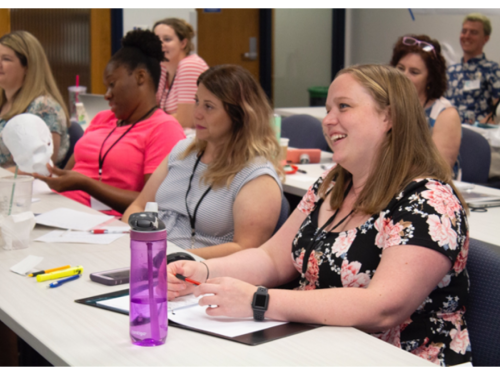
Hosted by the UF’s Thompson Earth Systems Institute, the Human Evolution Summer Teacher Workshop brought together teachers as part of a collaboration between professional scientists and K–12 educators to incorporate paleontology and paleoanthropology into their existing science curricula.
Since human evolution is inherently connected to other scientific disciplines, this workshop served as a medium to introduce broader concepts within paleontology and geology.
Teaching evolution in a K-12 setting can be difficult due to its seemingly controversial nature. Learning about human evolution specifically helps educators emphasize how we are influenced by and are the products of evolution just as much as any other organism.
Workshop learning outcomes:
- Increased understanding of the process of science
- Increased knowledge of available digital resources
- Best practices for structuring lesson plans aligned to state-specific science standards around open-source data
- Learned the power of using 3D prints in the classroom
- Best practices on teaching evolutionary theory in situations where it is deemed to be problematic
With the forged teacher-scientist network as a result of the workshop, a number of activities and lessons were created with plans to execute them in the classrooms. As those lessons are completed, be sure to check back for free access here.